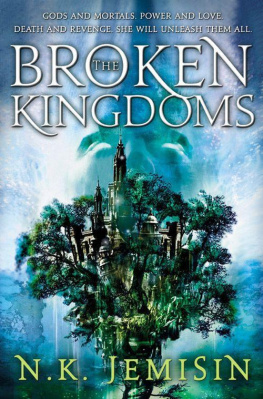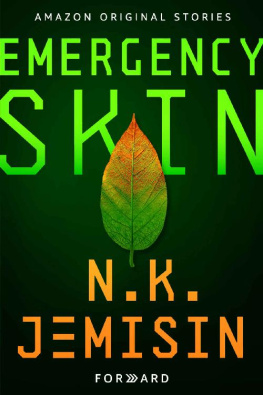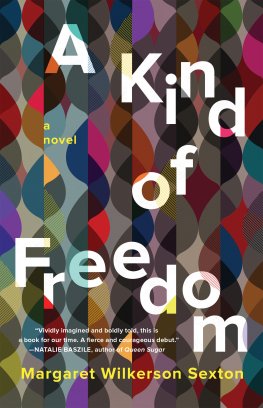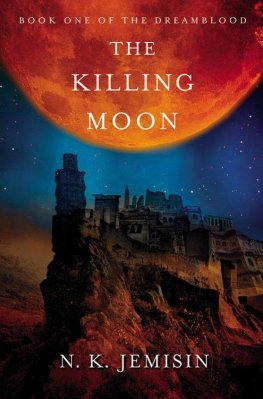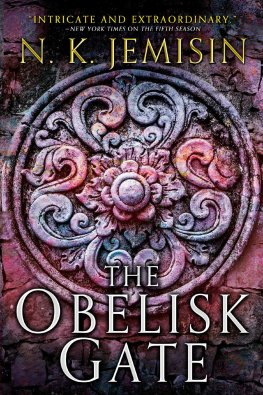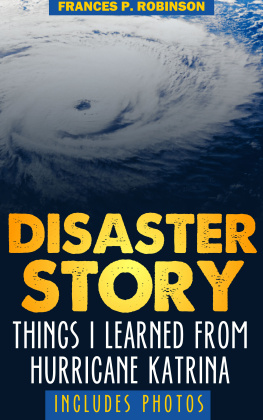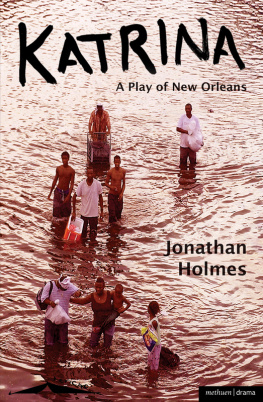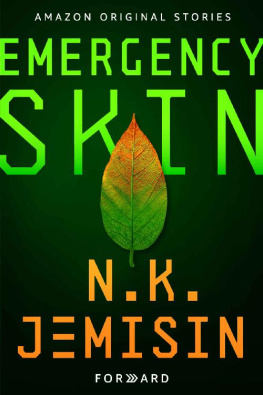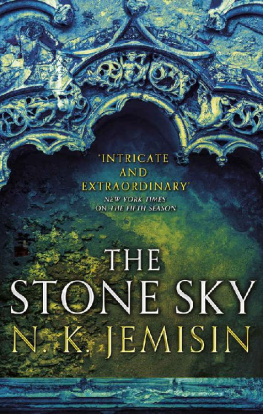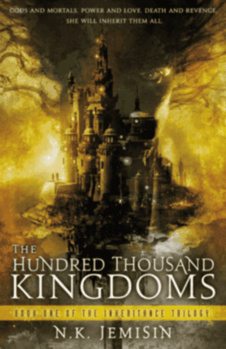This book is a work of fiction. Names, characters, places, and incidents are the product of the authors imagination or are used fictitiously. Any resemblance to actual events, locales, or persons, living or dead, is coincidental.
Copyright 2018 by N. K. Jemisin
Too Many Yesterdays, Not Enough Tomorrows Copyright 2004 by N. K. Jemisin; LAlchimista Copyright 2005 by N. K. Jemisin; Cloud Dragon Skies Copyright 2005 by N. K. Jemisin; The Brides Of Heaven Copyright 2007 by N. K. Jemisin; The You Train Copyright 2007 by N. K. Jemisin; The Narcomancer Copyright 2008 by N. K. Jemisin; Non-Zero Probabilities Copyright 2009 by N. K. Jemisin; On the Banks of the River Lex Copyright 2010 by N. K. Jemisin; The Effluent Engine Copyright 2011 by N. K. Jemisin; The Trojan Girl Copyright 2011 by N. K. Jemisin; Valedictorian Copyright 2014 by N. K. Jemisin; Walking Awake Copyright 2014 by N. K. Jemisin; Stone Hunger Copyright 2014 by N. K. Jemisin; Sinners, Saints, Dragons, and Haints, in the City Beneath the Still Waters Copyright 2015 by N. K. Jemisin; The City, Born Great Copyright 2016 by N. K. Jemisin; Red Dirt Witch Copyright 2016 by N. K. Jemisin; The Evaluators Copyright 2016 by N. K. Jemisin; Henosis Copyright 2017 by N. K. Jemisin
Cover design by Lauren Panepinto
Cover photograph by CreativeSoul Photography
Cover copyright 2018 by Hachette Book Group, Inc.
Hachette Book Group supports the right to free expression and the value of copyright. The purpose of copyright is to encourage writers and artists to produce the creative works that enrich our culture.
The scanning, uploading, and distribution of this book without permission is a theft of the authors intellectual property. If you would like permission to use material from the book (other than for review purposes), please contact permissions@hbgusa.com. Thank you for your support of the authors rights.
Orbit
Hachette Book Group
1290 Avenue of the Americas
New York, NY 10104
orbitbooks.net
Simultaneously published in Great Britain and in the U.S. by Orbit in 2018
First Edition: November 2018
Orbit is an imprint of Hachette Book Group.
The Orbit name and logo are trademarks of Little, Brown Book Group Limited.
The publisher is not responsible for websites (or their content) that are not owned by the publisher.
The Hachette Speakers Bureau provides a wide range of authors for speaking events. To find out more, go to www.hachettespeakersbureau.com or call (866) 376-6591.
Library of Congress Cataloging-in-Publication Data
Names: Jemisin, N. K., author.
Title: How long til black future month? / N. K. Jemisin.
Other titles: How long until black future month?
Description: First edition. | New York, NY : Orbit, 2018.
Identifiers: LCCN 2018034027| ISBN 9780316491341 (hardcover) | ISBN 9780316491372 (trade pbk.) | ISBN 9781549147289 (audiobook downloadable) | ISBN 9780316491358 (ebook (open))
Classification: LCC PS3610.E46 A6 2018 | DDC 813/.6dc23
LC record available at https://lccn.loc.gov/2018034027
ISBNs: 978-0-316-49134-1 (hardcover), 978-0-316-49135-8 (ebook)
E3-20181006-JV-PC
O nce upon a time, I didnt think I could write short stories.
The time was 2002. Id just turned thirty and had my first midlife crisis. (Yeah, I know.) I was living in Boston, where it was cold and hard to make friends and nobody put seasoning on anything. Id just ended a lackluster relationship, and I was in student loan debt up to my eyeballs, like pretty much everybody else in my generation. In an attempt to resolve frustration with the state of my life, I finally decided to see whether my lifelong writing hobby could be turned into a side hustle worth maybe a few hundred dollars. If I could make that much (or even just one hundred a year!), I might be able to cover some of my utility bills or something. Then I could get out of debt in twelve or thirteen years, instead of fifteen.
I wasnt expecting more than that, for reasons beyond pessimism. At the time, it was clear that the speculative genres had stagnated to a dangerous degree. Science fiction claimed to be the fiction of the future, but it still mostly celebrated the faces and voices and stories of the past. In a few more years there would come the Slushbomb, an attempt by women writers to improve one of the most sexist bastions among the Big Three; the Great Cultural Appropriation Debates of DOOM; and Racefail, a thousand-blog storm of fannish protest against institutional and individual racism within the genre. These things collectively would open a bit more room within the genre for people who werent cishet white guysjust in time for the release of my first published novel, The Hundred Thousand Kingdoms. But back in 2002 there was none of that. In 2002, I knew that as a black woman drawn to science fiction and fantasy, I had almost no chance of getting my work published, noticed by reviewers, or accepted by a readership that seemed to want nothing more than endless variations on medieval Europe and American colonization. And while I couldve sharted out my own variation on medieval Europe or American colonizationand probably should have, if I wanted to pay off my loans fasterthat just didnt interest me. I wanted to do something new.
Established writers advised me to attend one of the Clarions or Odyssey, but I couldnt; the day job only allowed me two weeks of vacation time. Instead, I borrowed six hundred dollars from my father and attended Viable Paradise, a one-week workshop out on Marthas Vineyard. Since a week isnt really enough time to substantively improve attendees writing, VP focused on other stufflike how to make it in the business of fiction. I learned tons about getting an agent, the publication process, and how to survive as a writer; it was exactly what I needed at that stage of my career. And there I was given one more really good piece of advice: learn to write short stories.
This was the only VP advice that I balked at, because it sounded completely nonsensical to me. Id read some short stories over the years, and enjoyed a few, but never felt the urge to write any. I knew enough to argue that short stories were a completely different art form from novels, so shouldnt I spend my limited free time refining the thing I wanted to do, rather than learning this other thing that honestly seemed kind of boring? Also, I knew that the pay rate for short stories was abysmal; this was in the days when the SFWA-acceptable rate for pro-level markets was only three cents per word. Remember, one of my goals was utility-bill money. Short stories, assuming I sold any, wouldnt even cover the cooking gas.
But the instructors at VP made a compelling case. The argument that finally convinced me was simply this: learning to write short fiction would improve my longer fiction. I didnt know whether to believe this or not, but I decided to spend a year finding out. For that year, I subscribed to F&SF and the now-defunct Realms of Fantasy, read online markets like Strange Horizons, and joined a writing group. The project didnt go well at first. My first short story was a whopping 17,000 words and had no ending. But I got better. When I started submitting those stories to magazines, I got lots of rejections. My writing group helped me see that rejections are part of writing; we collected them, in fact, and tried to celebrate them along with the acceptances. Then I started getting acceptancessemipro markets at first, and then finally pro sales.


